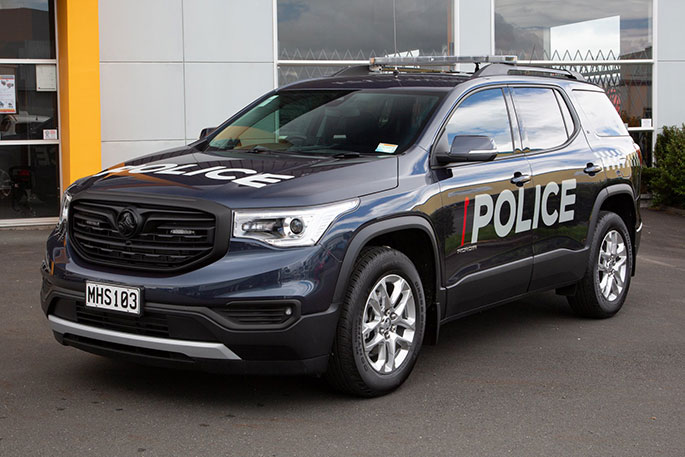Police Commissioner Mike Bush has today announced a trial of Armed Response Teams to support Police's tactical capabilities on the frontline.
The aim of the ARTs is to minimise the risk of harm to the New Zealand public and police staff.
ARTs will complement police's initial response to critical or high risk incidents by being on duty at peak demand times, seven days a week.
ARTs are specialist police personnel who are part of our Armed Offenders Squad.
"Our AOS is normally on call 24/7, but for the trial they will be routinely armed, equipped, mobile and ready to support our frontline with any events or incidents that require enhanced tactical capabilities," says Mike.
They are a standard feature across policing jurisdictions internationally.
'The Police's mission is that New Zealand is the safest country. Following the events of March 15 in Christchurch, our operating environment has changed.
'The threat level remains at medium and we are continuously reviewing our tools, training, and capabilities we use to provide Policing services to ensure we remain fit for purpose.”
ARTs will have access to a range of tactical options and on average they will consist of a minimum of three specialist AOS personnel.
At times they may be supported by additional staff such as the police's specialist dog units.
'Police must ensure our people are equipped and enabled to perform their roles safely and to ensure our communities are, and feel, safe.
"This means having the right people with the right tools, skills and knowledge ready to respond at all times.
'The introduction of ARTs improves our ability to respond to rapidly evolving events and incidents with highly-trained specialist skills and expertise, minimising risks to our people and the public.
'ARTs will be trialled in in Counties Manukau, Waikato and Canterbury for six months.
These three police districts have been chosen to host the trial, as they have the highest number of firearms seized, located and surrendered, and have the largest AOS groups to support the trial, says Mike.
'During the trial, ARTs will be focused on responding to events where a significant risk is posed to the public or staff.
'They will also support the execution of pre-planned and high-risk search warrants, high-profile public events and prevention activities.”
The trial will be evaluated to see what impact, ARTs have on staff and public safety.
The evaluation will be undertaken by the Evidence Based Policing Centre.
Summary of Police's Armed Response Teams
Armed Response Teams will be:
• teams of a minimum of three armed, AOS trained staff with a specialist vehicle equipped with tactical options
• operating seven days a week
• focused on responding to events where a significant risk is posed to the public or staff and supporting the execution of pre-planned and high-risk search warrants, high-profile public events and prevention activities
• trialled for a period of six months in Counties Manukau, Waikato and Canterbury Police Districts
• evaluated by Police's Evidence Based Policing Centre to see whether the use of ARTs make staff and communities be, and feel, safe.
Question and Answers
1.
Is there an immediate threat Police is responding to?
There is no immediate threat.
However, we must recognise that the environment has changed and Police's capability and resourcing needs to reflect this to ensure New Zealanders feel, and are, safe.
We are undertaking the trial to assess whether ARTs improve Police's ability to keep our staff and the public safe through their ability to respond to situations with specialist skills and expertise, minimising risks to the public and our people.
2.
Will ARTs operate 24/7?
During the pilot ARTs will operate during peak demand times, seven days a week with AOS squads continuing to provide support outside these hours.
3.
What will the ARTs look like?
ARTs will use a specialist vehicle, which has a colour scheme as our other specialist teams (e.g.: Eagle helicopter).
Staff will wear standard blue operational uniform with Police's new Body Armour System.
4.
How have you measured the risk in the trial locations?
The risk has been measured through a Police programme called Gun Safe that records incidents and details when Police encounter firearms.
This programme was initially trialled across Tamaki Makaurau in late 2018 to ensure it was something every Police district could easily use.
Nationwide rollout then began gradually from December 2018, with every Police district being on board by March 2019. Counties Manukau, Waikato and Canterbury have the highest number of firearms seized, located and surrendered.
5.
What is the Evidence Based Policing Centre (EBPC)?
The EBPC uses practitioner-based research, information, crime-science, theory, and problem-solving methods to inform practice, implement measures to prevent crime and improve the allocation of Police resources to better protect our staff and the public.



0 comments
Leave a Comment
You must be logged in to make a comment.